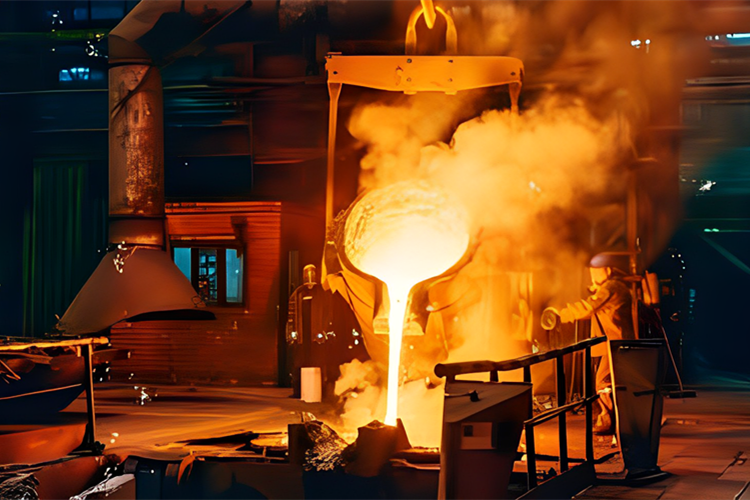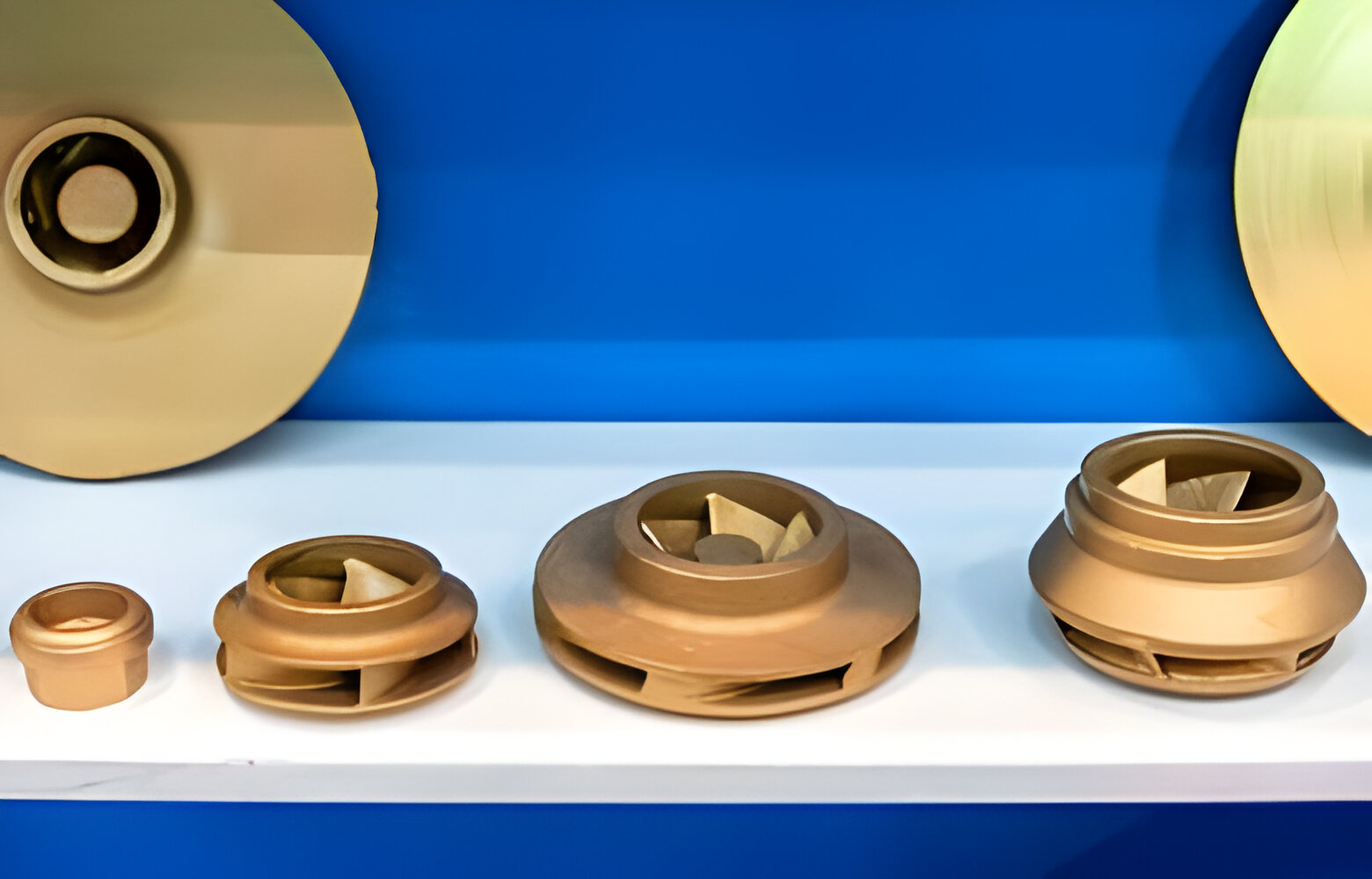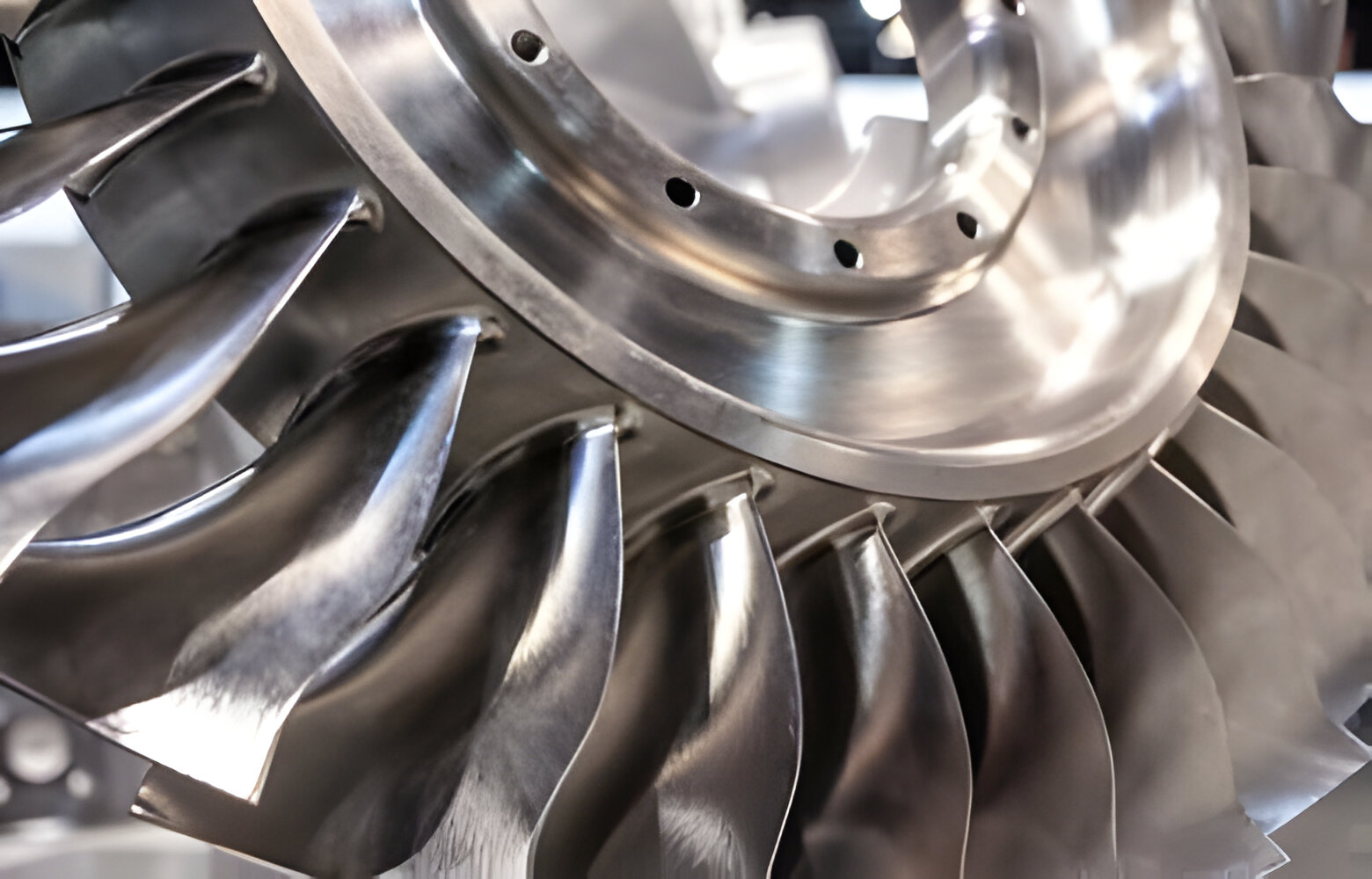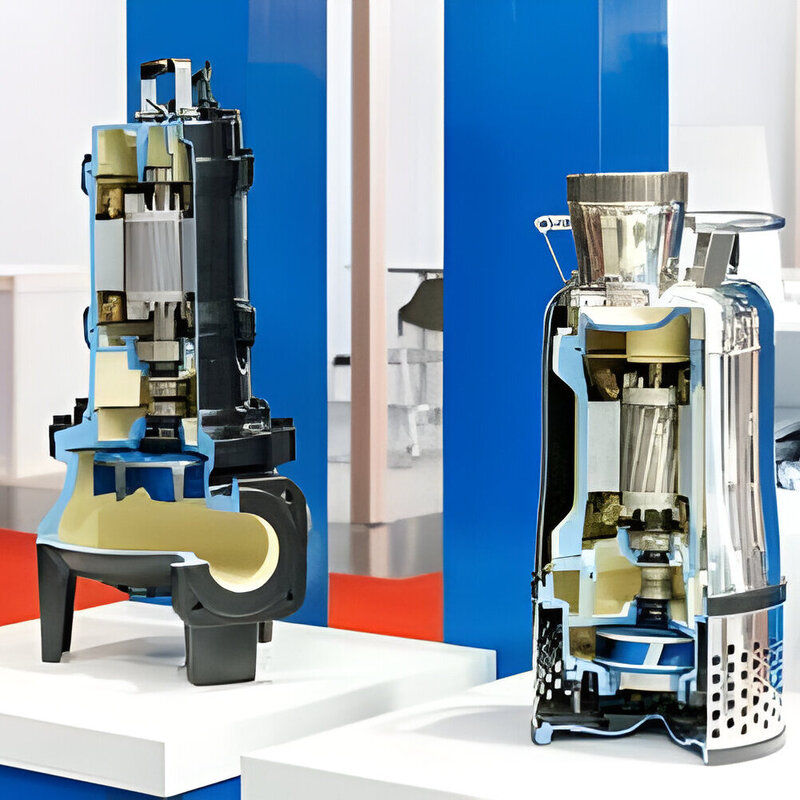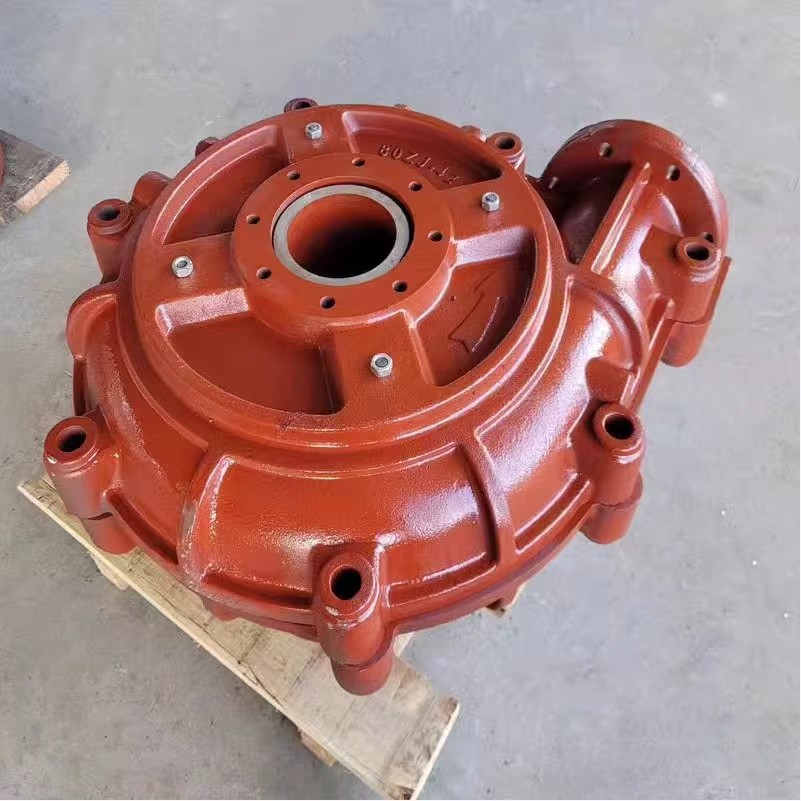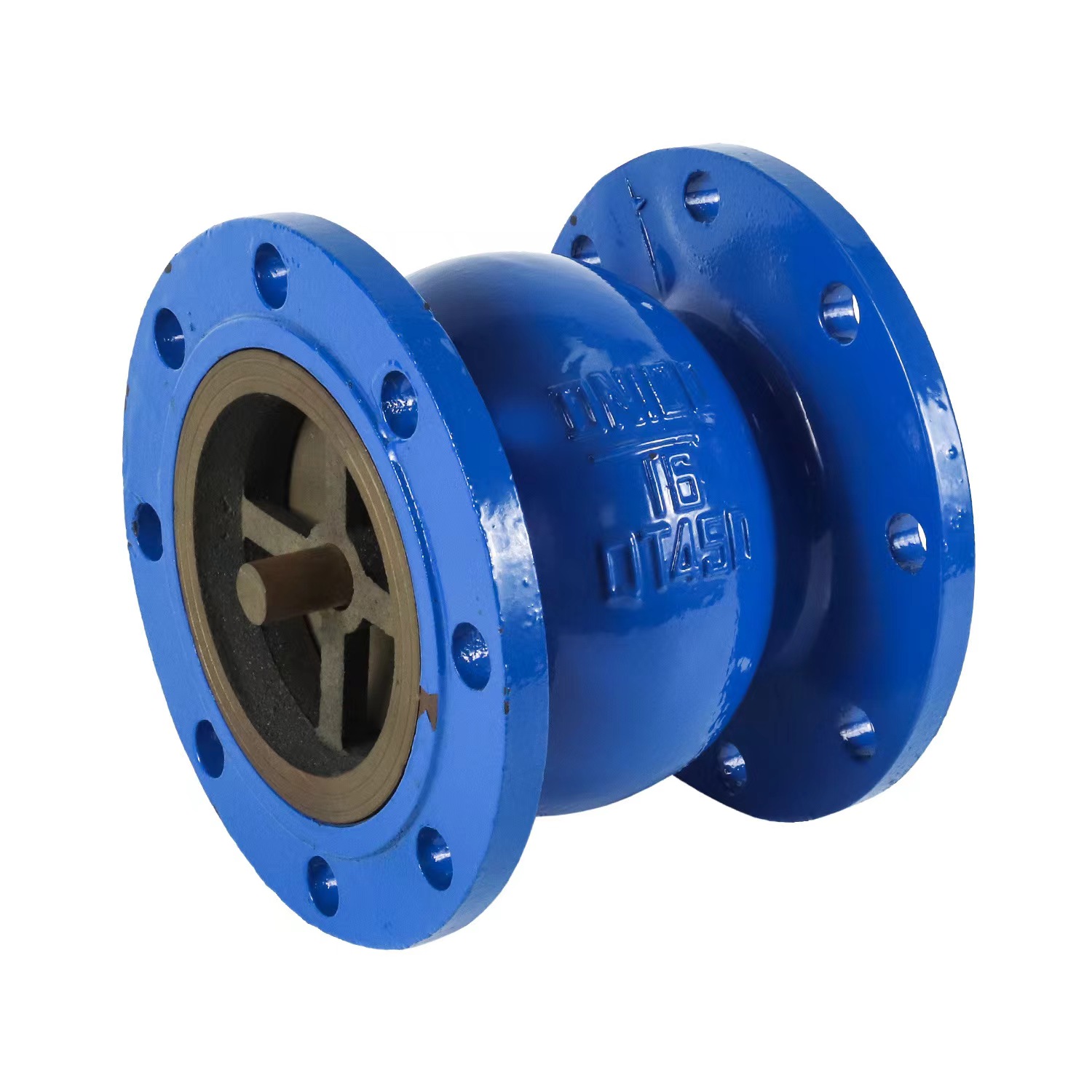In today's fast-changing manufacturing world, low volume casting is becoming more popular. It's a cost-effective way to make custom and small batch parts. Unlike making lots of parts at once, low volume casting lets companies make special parts, prototypes, and unique products in small amounts. This method has big benefits like lower costs, design flexibility, quicker production, and less risk.
At KT-FOUNDRY, we use advanced casting tech like die casting, investment casting, and sand casting. We make precise parts that fit the needs of many industries. Our expertise in low volume casting helps businesses stay ahead in the competitive market.
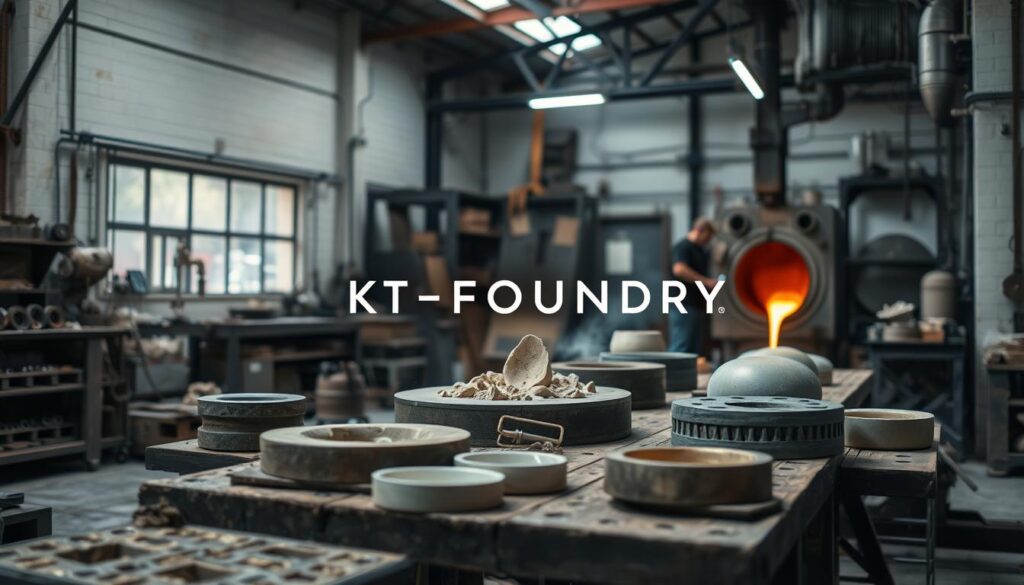
Key Takeaways:
- Low volume casting is an increasingly popular manufacturing approach that provides cost-effective, high-quality solutions for producing custom and small batch parts.
- Unlike high-volume production, low volume casting allows businesses to manufacture specialized components, prototypes, and niche products in limited quantities.
- Low volume casting offers significant benefits, including reduced initial costs, flexibility in design and customization, faster time-to-market, and risk mitigation.
- KT-FOUNDRY leverages advanced casting technologies to deliver precision-engineered parts that meet the unique requirements of various industries.
- Our low volume casting expertise enables us to provide custom solutions that cater to the needs of businesses seeking to maintain a competitive edge in today's dynamic market.
What is Low Volume Manufacturing?
Low volume manufacturing means making a small number of items, from a few to several thousand. It's different from making lots of the same thing to save money. This method is great for making small batches, prototypes, and custom products for specific needs.
Understanding the Concept of Low Volume Production
There are three main ways to do low volume manufacturing: injection molding, CNC machining, and 3D printing. Injection molding uses many materials to make the same product over and over. CNC machining is fast and makes high-quality items with many material options. 3D printing is best for making light, custom products with endless design possibilities.
Difference Between Low Volume and High Volume Manufacturing
The main difference is the amount made and how flexible it is. Low volume is for making small amounts, prototypes, and custom items. High volume is for making lots of the same thing to save money. Low volume lets companies get products to market quickly, save money, and offer more design choices.
| Characteristic | Low Volume Manufacturing | High Volume Manufacturing |
|---|---|---|
| Production Quantity | Less than 100 parts | Thousands or millions of parts |
| Production Methods | Injection molding, CNC machining, 3D printing | Dedicated production lines, assembly lines |
| Cost Structure | Higher per-unit costs due to overhead, tooling, and labor | Lower per-unit costs due to economies of scale |
| Flexibility | Highly flexible, able to respond to market changes | Less flexible, focused on maximizing production efficiency |
| Time to Market | Faster, from days to weeks | Slower, from months to years |
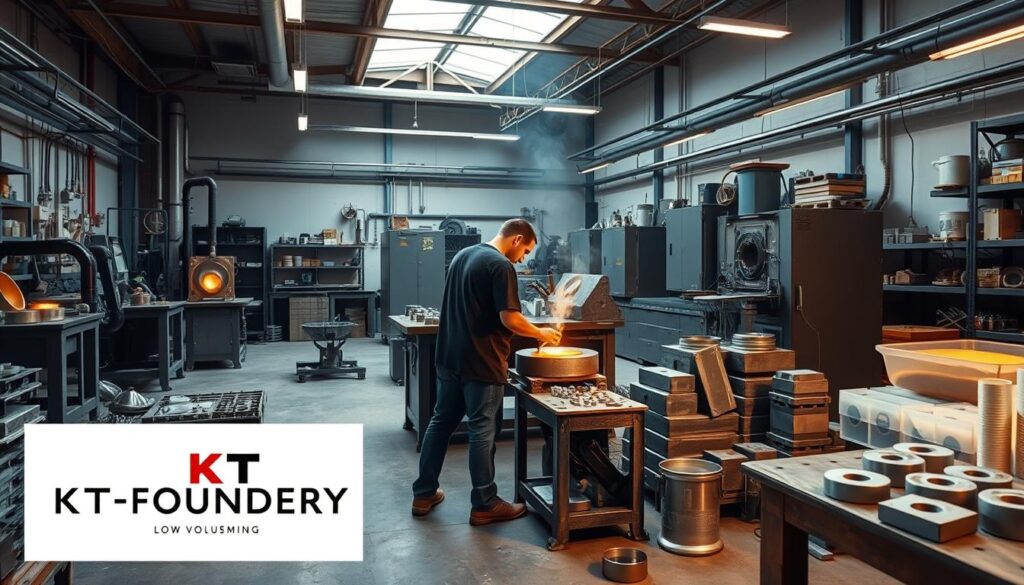
Benefits of Low Volume Casting
Low volume casting is great for businesses looking to save money without sacrificing quality. It costs less upfront because you don't need to spend a lot on tools. This makes it perfect for startups, small businesses, and anyone wanting to quickly introduce new products.
Flexibility in Design and Customization
Low volume casting lets you design and change products easily. This means you can quickly adapt to what customers want. It helps you get your products to market fast and with less risk.
Faster Time-to-Market and Risk Mitigation
It also means you can get your products out faster. This quick approach helps you avoid big risks. You can test your designs and get feedback before making a big production run.
In summary, low volume casting is a smart choice. It saves money, allows for easy design changes, and gets products to market quickly. It's great for tapping into niche markets, managing inventory, and keeping quality high.
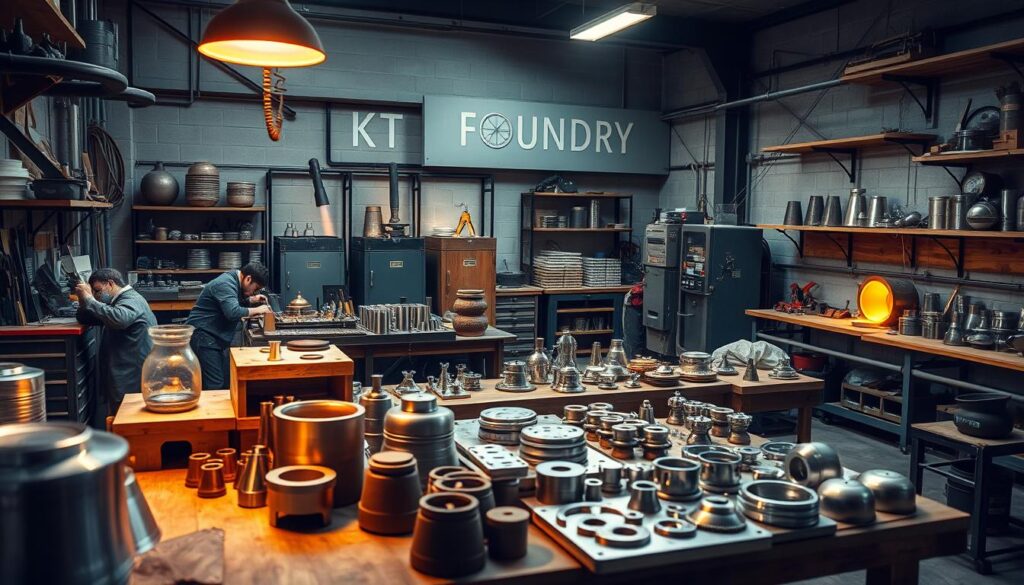
Main Types of Low Volume Manufacturing Processes
Businesses have many options for low volume manufacturing. They can choose from injection molding for plastics and metals. Or they can go for CNC machining for complex steel parts. This variety helps companies turn their ideas into reality.
Injection Molding for Plastics and Metals
Injection molding is a key method for making plastic and metal parts. It's good because it's both affordable and can grow with your needs. It works by filling a mold with hot material, making parts that are detailed and consistent, even in small amounts.
CNC Machining for Precision and Complex Parts
CNC machining is great for making precise and complex parts. It uses computer-controlled tools to cut out high-quality steel parts. This makes it perfect for industries that need top-notch quality and performance.
3D Printing and Additive Manufacturing
3D printing and additive manufacturing have changed low volume production. They let businesses make detailed parts and test ideas quickly. These technologies work with many materials, from plastics to metals, and make parts on demand. This is super useful for custom and low volume needs.
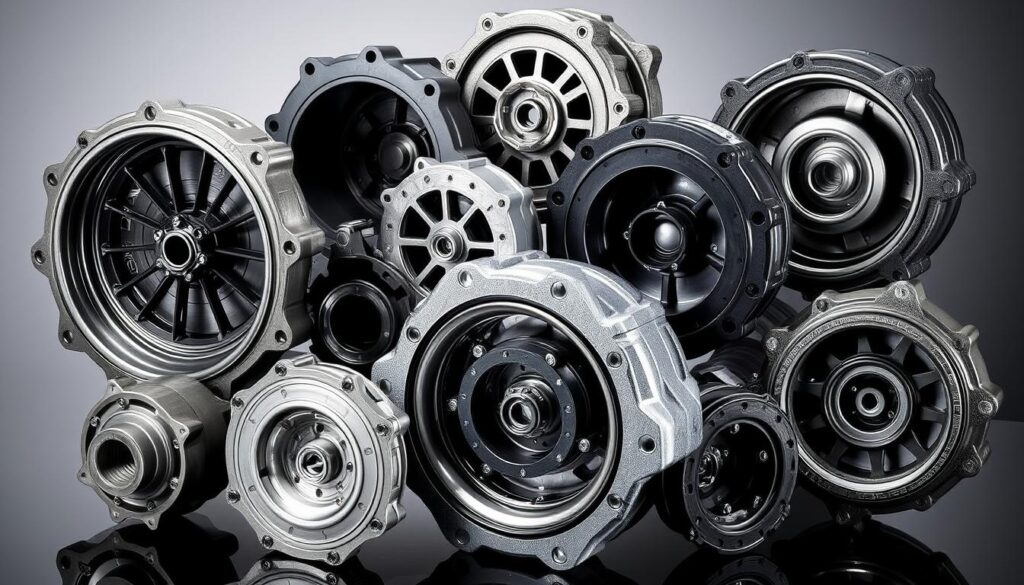
Companies can pick the best method for their needs. Whether it's the cost of injection molding, the precision of CNC machining, or the design freedom of 3D printing. Each method meets different industry needs. This way, businesses can improve their production and get their products to market quickly.
Low Volume Casting
In the world of manufacturing, low volume casting is a specialized method. It's perfect for making custom and small batch parts. This process uses molten metal poured into molds made by different techniques. These include die casting, investment casting, sand casting, and plaster mold casting.
These methods allow for detailed designs and high-quality parts. This makes low volume casting great for businesses wanting to introduce new products.
The Process of Low Volume Casting
The low volume casting process is both cost-effective and flexible. It's designed for businesses needing custom parts or small production runs. Unlike traditional methods, it offers more design freedom, lower tooling costs, and quicker production times.
This makes it ideal for companies wanting to quickly make prototypes, niche products, or specialized components.
Advantages of Low Volume Casting for Custom Parts
- Design Flexibility: Techniques like investment casting and sand casting allow for complex designs. These are hard to achieve with other methods.
- Cost-Effectiveness: Low volume casting has lower tooling costs and supports small batch production. This makes it a cost-effective option for businesses with limited needs.
- Rapid Manufacturing: Its quick lead times and versatility help companies quickly introduce new products. This reduces risks and meets changing customer demands.
- Part Quality: The casting process ensures high-quality parts. They have excellent accuracy and surface finishes, meeting strict industry standards.
By using low volume casting, businesses can explore new opportunities for innovation and customization. This approach helps them stay competitive in a rapidly changing market.
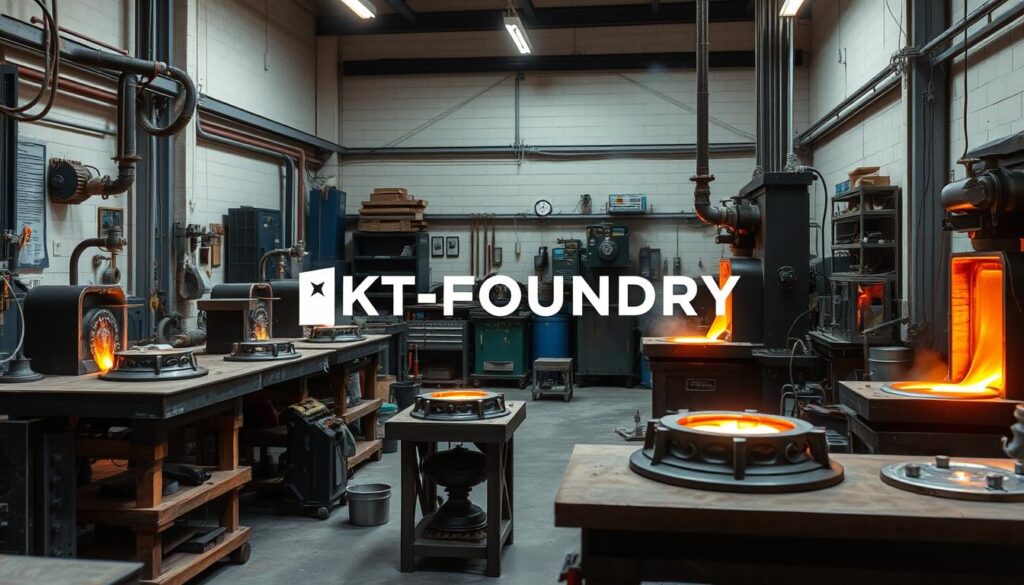
Industries Utilizing Low Volume Manufacturing
Low volume manufacturing is used in many industries. Each one has its own needs and challenges. It's used in the automotive, aerospace, medical, and consumer electronics fields. It also helps in making customized furniture and specialized components.
Automotive and Aerospace Applications
In the automotive and aerospace fields, making a few items at a time is key. This method is used for parts, custom pieces, and special cars. It's all about being flexible and saving money while making top-notch products.
Medical and Healthcare Equipment Production
The medical and healthcare world benefits a lot from low volume manufacturing. It helps make special equipment, prosthetics, and tools for surgery. This way, doctors can give patients exactly what they need, improving care and results.
Consumer Electronics and Customized Furniture
Low volume manufacturing is also great for making unique consumer goods and furniture. It lets companies create products that stand out. This approach helps build customer loyalty and sets brands apart.
In every field, low volume casting offers flexibility and cost savings. It's perfect for making special products quickly and efficiently.
| Industry | Applications of Low Volume Manufacturing |
|---|---|
| Automotive | Specialized components, custom parts, limited-edition vehicles |
| Aerospace | Specialized components, custom parts, defense systems |
| Medical and Healthcare | Specialized equipment, prosthetics, surgical tools |
| Consumer Electronics | Innovative, niche products, product testing |
| Customized Furniture | Personalized design elements, custom furniture |
"Low volume manufacturing allows us to explore new design concepts, materials, and production techniques, fostering innovation and meeting the unique needs of our customers."
Challenges and Considerations in Low Volume Casting
Low volume casting has many benefits, but it also comes with unique challenges. Managing small batches and production runs is more complex. This is because the benefits of large-scale manufacturing are not available. Keeping quality high and tolerances precise is also crucial for making limited parts.
Managing Small Batch Sizes and Production Runs
Creating parts in small quantities requires careful planning and inventory management. It can be hard to keep costs down due to fixed costs like tooling and setup. KT-FOUNDRY's team uses their manufacturing expertise to overcome these issues. They ensure efficient production and inventory management for our clients' needs.
Quality Control and Precision Requirements
In low volume casting, quality control and precision are key. Without the advantage of large production runs, each part must be carefully checked. KT-FOUNDRY uses advanced technologies and strict quality measures. This ensures our clients get high-quality, cost-effective parts for their projects.
| Casting Method | Suitable Production Volume | Key Considerations |
|---|---|---|
| Machining | Prototyping, Low-Volume (hundreds to a few thousand parts) | Quicker production, allows for modeling, testing, and redesign |
| Sand Casting or Die Casting | 10,000 parts or more | More economical for high volumes, but requires higher initial investment |
"Giga castings can weigh over 7 tonnes and have longer sections and thinner walls than traditionally cast components, with a single giga casting reaching up to 1.5m in length."
KT-FOUNDRY uses its expertise in low volume casting to help clients. We overcome challenges and deliver high-quality, cost-effective solutions for their specialized needs.
Key Factors for Choosing Low Volume Production
When looking at low volume casting, several key factors need to be considered. The demand for the product and the market niche are crucial. Low volume production is great for specialized or customized products. The cost-effectiveness of the casting process and the initial tooling investment are also important. It should offer a good return on investment.
Design customization and manufacturing flexibility are also key. Low volume casting allows for complex geometries and quick changes. By evaluating these factors, businesses can decide if low volume casting is right for them.
Product Demand and Market Niche
Companies often choose low volume production for small quantities. It's perfect for new businesses to test the market before making a big batch. Products with detailed designs are ideal for low volume production.
This method allows for focus on quality and customer satisfaction. The size of the target market is also important. A small market benefits from low quantity production to save time.
Cost-Effectiveness and Tooling Investment
High-quality materials are key for low volume production. It's about making high-quality goods for niche markets. The ability to make changes without big costs is a big plus.
Low volume production reduces risks seen in high volume manufacturing. It lets companies produce goods that might not work in prototyping.
Customization and Flexibility Needs
Companies in the early stages often use low volume production. It helps them understand customer preferences before mass production. Low-volume production means making products as needed, without a lot of inventory.
Prototyping is a critical step in product development. Low-volume production is recommended during prototyping and market testing. It offers flexibility and quick results.
"Low-volume production allows for making more units with fewer resources but necessitates investing more time and effort to ensure product quality."
Low Volume Casting at KT-FOUNDRY
At KT-FOUNDRY, we focus on top-notch low volume casting solutions. Our team has a lot of experience in different casting methods. This means we can make high-quality, precise parts that fit your exact needs.
Our Low Volume Casting Services and Capabilities
We're known for being cost-effective yet flexible in design. This lets us make custom parts, prototypes, and small batches quickly. Our use of the latest tech and strict quality checks ensures every project is done right.
- Expertise in die casting, investment casting, and sand casting processes
- Capability to manufacture custom parts and prototypes in small batches
- Commitment to cost-effective production without compromising quality
- Emphasis on design flexibility and rapid turnaround times
- Rigorous quality control and testing procedures
Why Choose KT-FOUNDRY for Your Low Volume Casting Needs?
KT-FOUNDRY is a trusted name for innovative, affordable manufacturing solutions. Our deep industry knowledge, advanced tools, and focus on quality make us perfect for your low volume casting needs.
| Capabilities | Benefits |
|---|---|
| Precision casting for custom parts | Personalized solutions tailored to your specific needs |
| Rapid prototyping and small batch production | Faster time-to-market and reduced development costs |
| Rigorous quality control and testing | Consistently high-quality castings that meet industry standards |
| Design flexibility and cost-effectiveness | Optimal balance between customization and affordability |
See how KT-FOUNDRY's low volume casting skills can change your manufacturing. Get in touch with us today to find out more about our services and how we can help your business thrive.
Conclusion
In today's fast-changing business world, low volume casting is a key solution. At KT-FOUNDRY, we're experts in offering top-notch, custom low volume casting services. We serve many industries, from small batch production to rapid prototyping and specialized parts for unique markets.
Our team works hard to create innovative, efficient solutions for you. We use our knowledge of casting, materials, and design to make your ideas real. This way, we ensure you get the best value and fast production.
Our focus on quality and customer happiness makes us a top choice for low volume casting. KT-FOUNDRY is here to help your business grow and succeed in a changing world. We're ready to be your partner in custom, small-scale manufacturing.

